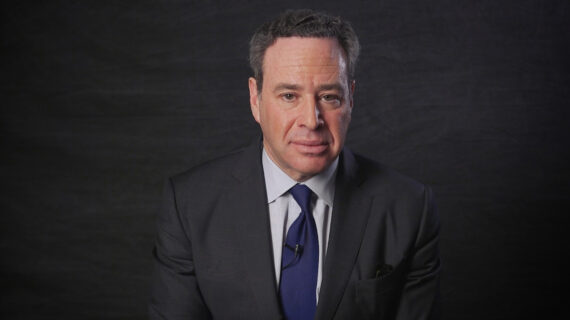Last week’s disappointing election outcome for Manitoba’s Progressive Conservative Party has caused me to reflect on some of the lessons that I’ve accumulated over 20 years in grassroots politics.
The insights that follow may have relevance for anyone interested in the practice of politics—though as someone who has spent much of her adult life in Conservative (and conservative) circles, they’re put forward to fellow conservatives in the spirit of goodwill and constructive dialogue.
It’s never fun losing a campaign. It’s especially disheartening to wake up the next morning with the thoughts of would’ve, could’ve, and should’ve that invariably come with defeat. It makes for a doozy of a headache. On October 4th I woke up, for the fourth time since 2015, with that pounding in my brain due to the painful reality that my side had lost. Although my role as co-chair of the Progressive Conservative campaign was mostly an honourary one, I cared about the outcome, and the loss hurt. The way that we lost hurt almost as badly.
I was a candidate in five federal elections between 2008 and 2021. I’ve also been active in other campaigns in various grassroots roles including as a volunteer and an organizer. I’ve witnessed first-hand some smart campaigns and ones that were missing something. The results have generally reflected this mix. Not every losing campaign I worked on or ran in was a bad one. But win or lose there’s always something to learn.
Now, here’s where I should state clearly and unequivocally: if readers are expecting another example of a Canadian Conservative dumping on his or her own side, they’re going to be disappointed.
Other political parties make many of their own mistakes. It’s not just Conservatives that get the tone wrong or can slide too far into negativity. It’s not just Conservatives that can run the risk of mishandling so-called “wedge issues.” And it’s certainly not only Conservatives who can twist or contort their leader into something he or she is not or succumb to bouts of last-minute desperation. No political party has a monopoly on these types of common campaign mistakes.
With that caveat, what are the lessons rattling around in my post-election brain?
First, we need to stop trying to make our leaders into something they are not. The case in point is the Progressive Conservative leader who ran in this election. Anyone who knows her will tell you that she’s a kind and compassionate leader who is sensitive to people’s feelings. Trying to portray her as dogmatic and hard-edged, especially regarding searching the Winnipeg landfill for murdered Indigenous women, backfired. Not just because it seemed cruel even to those who agreed with her nuanced position on the issue, but because it wasn’t her true self. The campaign’s positioning and subsequent advertising on the issue were insensitive and wrong. It also did not reflect the leader.
I believe that in most cases, especially when the authenticity gap is so large, voters intuitively see through it and reject not only the false persona but the attempts of the campaign to deceive them. If the leader doesn’t believe in what the campaign is saying or doing, just don’t do it!
Now that doesn’t mean campaigns should not try to improve their leader’s image. The late Doug Finley, the one that many federal Conservatives called the “supreme wizard of campaigning” said that all candidates are like a box of cornflakes. A product to be sold to cornflake eaters. Those in charge need to make the box as attractive and appealing as possible so cornflake eaters will buy our box.
This applies in various ways including even how a leader looks. In this day and age, attention to one’s appearance and image is a necessity. Campaign managers need to ensure that their leader, male or female, has the best clothes, hair, and make-up. It may sound a bit superficial but there’s plenty of evidence that for better or for worse this stuff matters. Campaigns should literally spend months before a campaign working on body language coaching, speaking, and cadence instruction. Their leader should know when and how to smile when speaking (which is almost all the time) and when to look solemn (which almost always makes one appear angry, so choose those times wisely). Leave the scowling for the person doing the negative ads which, by the way, should never be the leader.
Speaking of negative ads, they do work, as was the case in the 2011 federal campaign. The Conservatives did a masterful job of painting the leader of the Liberal Party as someone “just visiting” Canada. The ads were clever, professionally produced, and aired well before the campaign started. And it stuck. I recall during that campaign speaking to a disengaged voter who told me she didn’t follow politics and didn’t know any of the issues. But she didn’t like the Liberal leader because (and these were her words verbatim) he was “just visiting.” Those ads did their job.
However, in the case of the recent Manitoba election when some of the heaviest attacks against the NDP were in the last week of the campaign, or in the case of 2006 when Liberals said a Conservative government led by Stephen Harper would result in soldiers in the streets, the critique looked desperate. Campaign managers and their communications advisors (both Liberal and Conservative) seem to think these last-minute attempts to smear their opponents will change some minds and help votes come their way. But they don’t. Going “nuclear” at the end of a campaign never works and, in my experience, usually backfires. No matter how bad things may seem for a campaign, it’s better to be disciplined, target the criticism of your opponent early, and, as much as possible, leave the voters with a positive view of your leader and your campaign as they head into the voting booth.
And for the love of God, use a professional advertising and production company for the ads unless it is a strategic decision to appear amateurish. Allowing a well-meaning and compliant campaign worker to use his or her smartphone to shoot an ill-thought-out video that was literally pulled out of someone’s hindquarters at campaign headquarters an hour earlier should be considered political malpractice. It’s one thing for a leader to do a quick video on their phone to get out a message on social media. It’s another to plan and execute a political advertisement and not use a qualified and professional marketing company to produce it.

Case in point is the current federal Conservative leader. The party has produced and released several ads that beautifully show him, his family, and his vision. They are strategically messaged and created. They leave most people feeling very good. At the same time, he regularly releases quick videos recorded on a phone where he is relaying a certain message while on his way to an event or meeting. These aren’t meant to look professionally produced but they’re equally effective. He and his team have gotten it right. There are times when social media posts can be filmed by an amateur. TV advertising and most others can not.
Finally, this last election campaign in Manitoba has reinforced what I know to be true and what every good campaign manager I’ve worked with has told me: the ground game matters. Volunteers take six weeks or more away from their lives and families, sacrificing to work and help on candidates’ campaigns going door to door, sometimes hitting each door four or five times during the writ period. This is time very well spent. It means that even if a candidate loses and the pain of defeat is real and raw, he or she and the people who helped them can hold their heads high knowing they did all they could to reach their voters.
It means in the case of the PC Party, it was beaten but not destroyed. The party received more than 40 percent of the popular vote and can revitalize and rebuild. The official opposition is well-positioned to be a strong one that can hold the incoming government accountable.
The individuals in charge of campaigns, sitting at the decision table with the power, the glory, and the blame, should never forget these people. In the big picture, it’s the candidates and their volunteers who saved a political party from what could have been a devastating final blow into a mere loss of seats and a strong opposition position. Because of the ground game there still exists support and resolve to keep going. The folks on the ground are the ones who can take credit for that.
And I can say that here in Manitoba, although we’re feeling the pain of more than just a “morning after the loss” headache, knowing real lives are affected by a campaign’s decisions and ultimate defeat, there’s hope. Hope for the next election knowing that Conservatives (and conservatives) are alive and well and will ultimately live to fight another day. That’s both a campaign and life lesson I’m very grateful for and is making my head feel better already.




